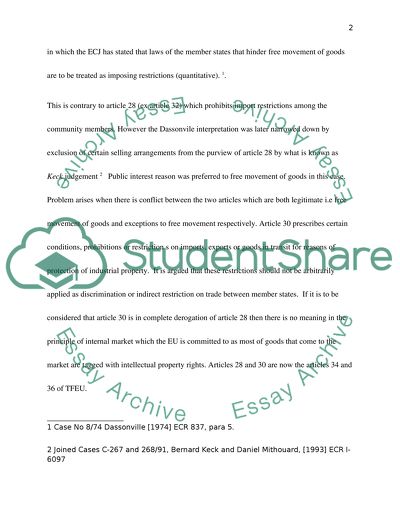Cite this document
(“EU LAW /Free Movement of Goods Assignment Example | Topics and Well Written Essays - 2000 words”, n.d.)
Retrieved from https://studentshare.org/law/1469058-eu-law-free-movement-of-goods
Retrieved from https://studentshare.org/law/1469058-eu-law-free-movement-of-goods
(EU LAW /Free Movement of Goods Assignment Example | Topics and Well Written Essays - 2000 Words)
https://studentshare.org/law/1469058-eu-law-free-movement-of-goods.
https://studentshare.org/law/1469058-eu-law-free-movement-of-goods.
“EU LAW /Free Movement of Goods Assignment Example | Topics and Well Written Essays - 2000 Words”, n.d. https://studentshare.org/law/1469058-eu-law-free-movement-of-goods.


